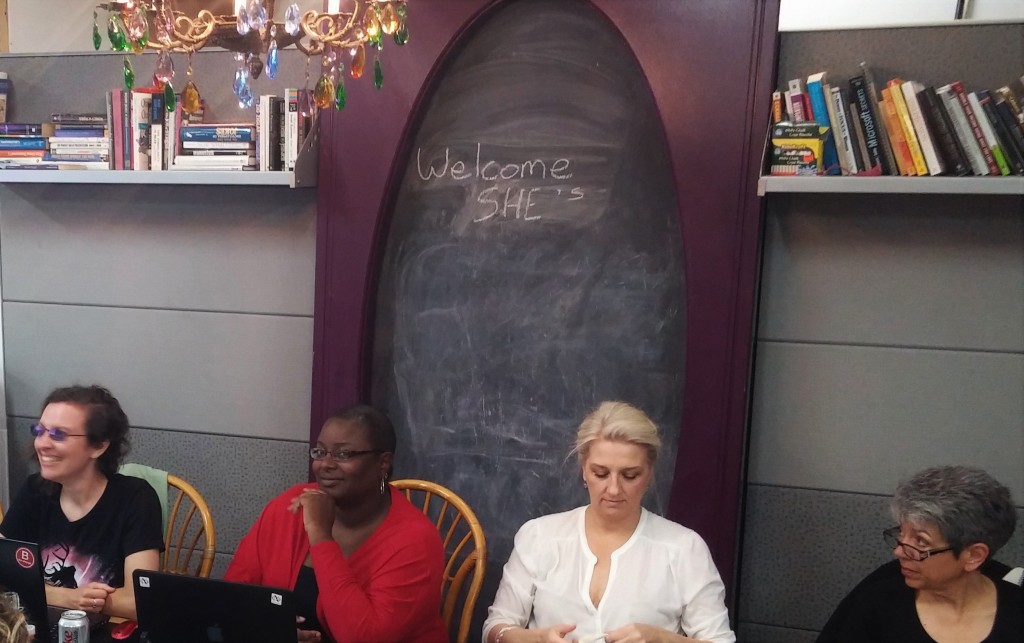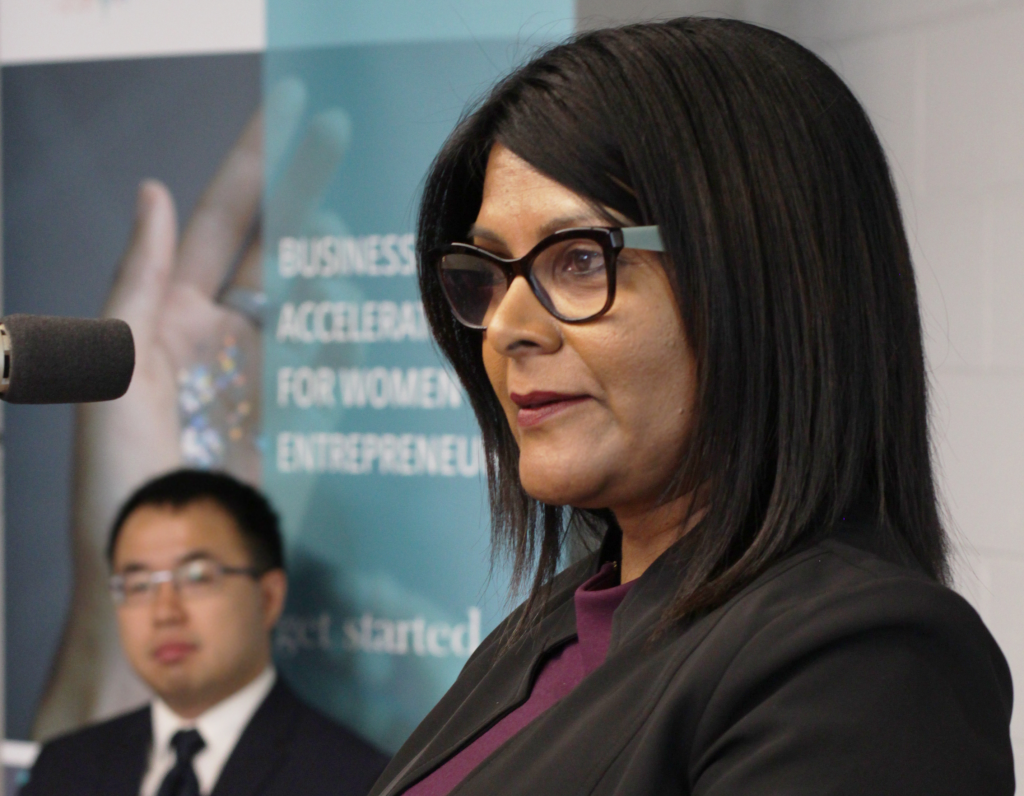
“You are risk takers, don’t listen to that stuff. You are risk takers because, quite frankly, you raise families, you have children, you move countries, you move cities, you have had enormous risk in your life!”
That message from Women on the Move’s CEO Heather Gamble—to ignore such axioms as “women can’t succeed in business because they don’t take risks”—had particular resonance for this audience of women business founders, some of whom had endured extreme risk, such as immigrating to Canada, heading single households, and surviving intimate partner violence. And the point was particularly impactful coming from an entrepreneur who reached $1 million in revenue just 18 months after launching her first startup.
As a revenue accelerator devoted to helping other women entrepreneurs reach the million-dollar milestone, Gamble is also a faculty mentor of The Refinery, a unique business growth program designed by women for women out of the Community Innovation Lab (iLab), a hub for entrepreneurs based one hour east of Toronto in Oshawa, Ont., where it serves the Durham Region.
Pramilla Ramdahani started the non-profit iLab as a way to tackle community social issues through an innovative lens in an ethnically diverse region with pockets hard-hit by job losses. Ramdahani, who has an MBA in community economic development and studied social entrepreneurship at Stanford University, left her own successful enterprise and bootstrapped iLab for three years before landing any kind of substantial funding. Talk about taking a risk. Eventually, the Ontario Trillium Foundation funded iLab’s most in-demand seminar, which morphed into The Refinery and will support 1,335 women through 2020.
Ramdahani says she started The Refinery after noticing two needs in the region: entrepreneurial training for women and assistance for marginalized women. After seeking feedback from the community through roundtable events, Ramdahani realized that women wanted a founder’s program created and staffed by women, to serve women. Women said they felt safer in smaller rooms with doors rather than one large open hall. They also said they have different and more open conversations when the instructors are female. Plus, they like to support each other. According to Brenna Ireland, director of operations for iLab, the women wanted a program to strengthen “business and personal ties to better the community, not just compete against each other.”
So, no, a traditional male-led accelerator would not do.
Yet, The Refinery is more than an all-female accelerator
At the earliest stages, LiisBeth founder Petra Kassun-Mutch designed a curriculum for women-only programs that helped infuse feminist entrepreneurial values throughout iLab’s work—business counselling and training, building opportunities and networks, mentoring, and widening access to capital. (Researchers Barbara Orser and Catherine Elliott define feminist entrepreneurship as “a mechanism to create economic self-sufficiency and equity-based outcomes for women, girls, and other gender-oppressed communities.”) All entrepreneurs at iLab are coached with the end goal of achieving autonomy, and by extension, strengthening their community with hiring and spin-off economic activity from new ventures.
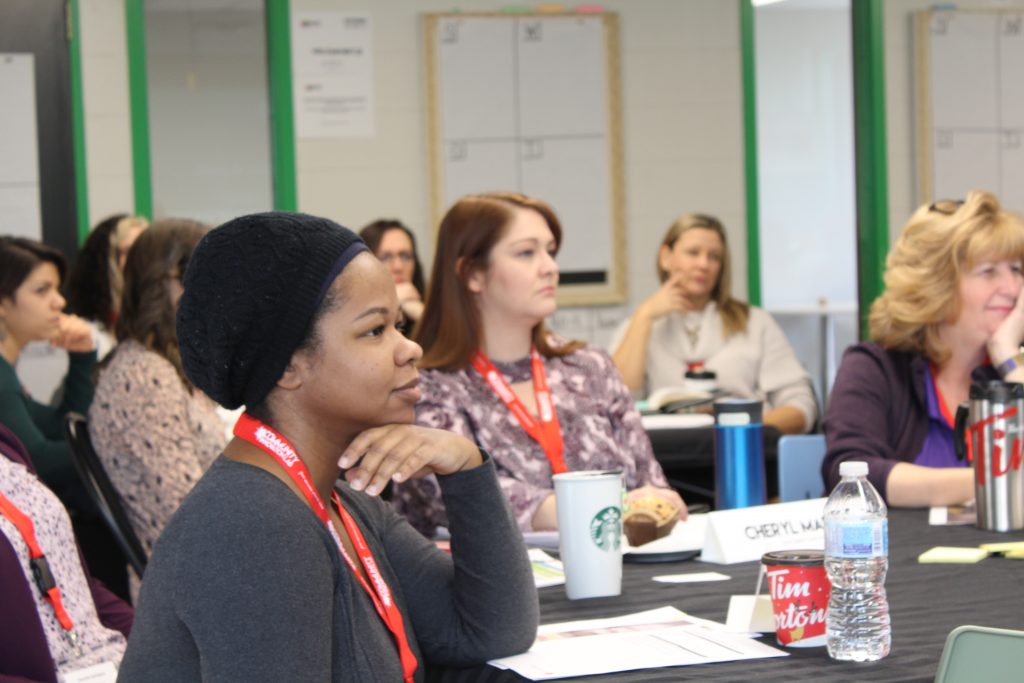
The Refinery includes a three-day boot camp, a year of intensive training delivered online and at the iLab centre, optional seminars on such topics as social media marketing, and opportunities to receive year-long mentoring from an established entrepreneur. Women learn how to access capital, build strong teams, scale processes, and generate sales.
The Refinery supports entrepreneurs working in a variety of sectors including business services, media, wellness and coaching, automotive sector, food, gift products, and human resources (note it’s not just tech). Women are guided to discover their own strengths and ideas, rather than the staff deciding which businesses would be best for them. According to Ramdahani, The Refinery is about “integrating empathy, social justice, and user-led techniques.”
The women-centric support and camaraderie is particularly important for abuse survivors, who face additional challenges when starting a business. According to the Institute for Women’s Policy Research in the U.S., survivors may have endured years of economic abuse, including tactics that damage their credit, deplete their resources, and prevent them from completing education and training. They may face ongoing threats of violence even after leaving an abuser, as well as legal issues and long-term mental and physical effects of trauma. Survivors may also have spotty employment records. Child care is often difficult to arrange after years of social isolation. And while all entrepreneurs may struggle with confidence, survivors must overcome low self-esteem brought on by years of abuse. They may also fear publicity or the idea of bringing their business online given that abusers often continue stalking and harassing their victims, in person and online. To top it off, survivors likely live under the poverty line and struggle to pay for food, shelter, utilities, and transportation expenses, leaving little to bootstrap a new business.
But the same policy research group also notes that survivors have strengths and resilience that may serve them well in entrepreneurship. The reality of managing a relationship with an abusive partner may require the same skills exhibited by the most successful CEOs: calculated risk-taking, thoughtful action, tough-mindedness, the ability to read people, problem solving, and determination.
In Oshawa, where iLab is based, domestic violence calls to police increased by 15 percent between 2013 and 2017, but the actual rate is much higher, as 70 percent of spousal violence is not reported to the police, according to the Canadian Women’s Foundation.
One survivor in The Refinery program (she asked to remain anonymous), who started a new business service while caring for elderly relatives, says she still suffers side effects from an earlier abusive relationship and has been grappling with relocation. She received much-needed sales, marketing, and financial training from The Refinery, but it was the all-female setting that was most critical. “It provides a safe spot,” she said. “Because after you’ve been victimized, you’re vulnerable and your confidence is shot. And so, any time a man is in the room, it’s a different dynamic than when you’re surrounded by women.”
She recommends The Refinery to “anybody that is looking to flesh out their business, anybody looking to ramp up their business, and who needs to build up a network of people. It certainly gives you all the supports that you need.”
The Refinery and iLab strive to create a safe space for all by requiring instructors to undergo police checks, as well as privacy and sensitivity training. The board of directors and staff strive to be as diverse as those they serve.
And here’s another appealing aspect for marginalized women: thanks to funding from Trillium, all fees are waived. Even optional seminars can be subsidized for those who need financial assistance. To help fund their startups, iLab partnered with the Business Development Bank of Canada (BDC) to widen the eligibility criteria for funding to help women entrepreneurs. Ramdahani also hopes to start a micro-lending circle at iLab to help women who don’t qualify for funding through banks, the BDC partnership, venture capitalists, or angel funding.
A safe space for women nurtures growth for all
Based on the success of The Refinery, iLab looked at other gaps in community services and launched entrepreneurial programming for additional under-represented groups. ILab started incubators for at-risk youth entrepreneurs called NEET (not in education, employment or training), Spice (seniorpreneurs who are 55 and up), and the Social Enterprises Accelerator that helps social entrepreneurs grow to the next level. Said Ramdahani, “If you cannot find employment, why not create your own business? That’s the pathway we see that participants can use to alleviate poverty.”
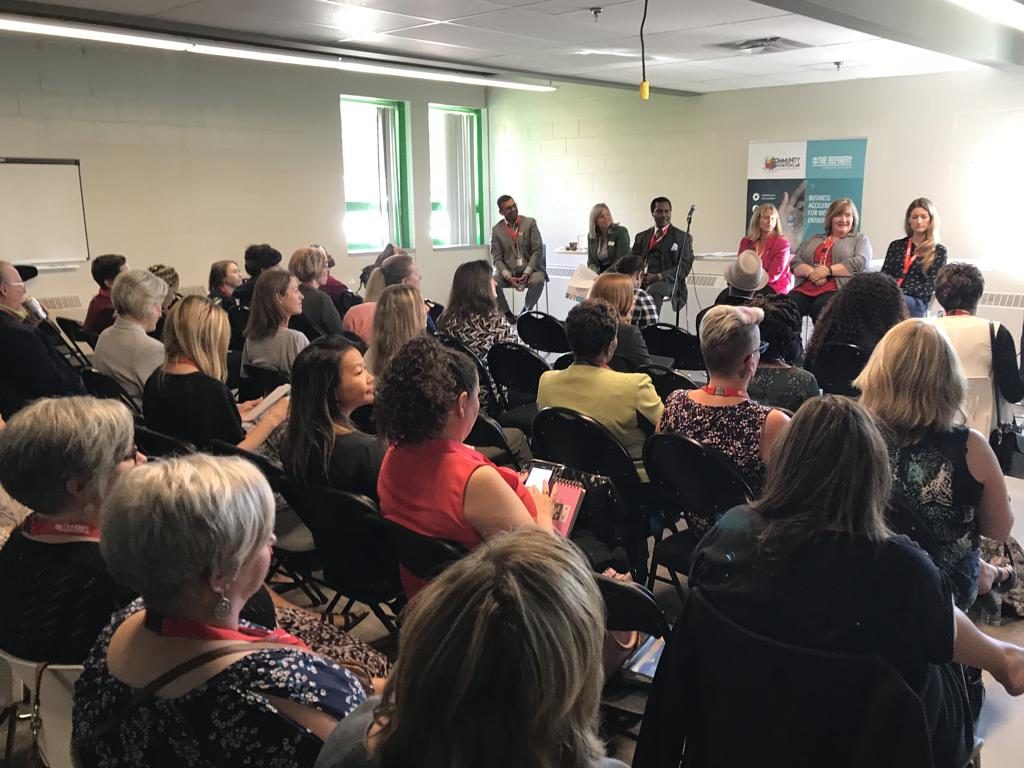
ILab also offers co-working spaces and rooms to rent for events and meetings—at a fraction of typical costs. Staff are quick to answer questions and find extra resources to accommodate attendees’ personal circumstances. And in order to create a community for entrepreneurs to grow and apply what they’ve learned, alumni from all streams are invited to join a Facebook group once they complete a program.
Elsii Faria, of The Hive Centre Bee and Bee, entered iLab’s social entrepreneur program to get much-needed support in a variety of areas. The business she runs with her husband offers overnight accommodation via a retreat centre that hosts nature, creativity, wellness, and spiritual events, as well as marketing and web design, and a platform called 1Community1 focused on community engagement. While building the business, Faria faced a life-threatening illness, took on a new mortgage for the bed and breakfast and office space, as well as cared for her one-year-old child. Faria says connecting with other social entrepreneurs at iLab gave her “really valuable support from other businesses with similar objectives.” It also introduced her to key partners such as Bear Standing Tall, their first Indigenous retreat leader. She had an arts education but needed to build up business skills. ILab helped her improve her sales skills and understand their business model. The business recently landed a grant that allows them to partner with Durham College to continue developing their 1Community1 platform.
Yet, for all of iLab’s success helping others, it has yet to receive solid funding support from any level of government—municipal, provincial or federal. Ramdahani is frustrated that governments favour investing in tech-based entrepreneurs and large urban-based non-profits. She is pleased that the Ontario Inclusive Innovation Action Strategy, released in June 2019, expands the government’s innovation definition to include “processes that are not tech-based.” But she points out that the strategy will only support women entrepreneurs at the high-growth stage only. “There is no funding for women who are marginalized, and who have just started a business, or have been in business for under three years,” Ramdahani said. Early-stage women founders often find doors for traditional loans closed. Without investment and cash flow to conduct business, Ramdahani wonders, How can they grow?
What funding is available for women entrepreneurs?
The federal government’s Women Entrepreneurship Strategy (WES) has added millions to support women, including new funding for enterprises in the high-growth stage, organizations that help grow women’s businesses, and research hubs. Currently, there is a federally funded women’s business development centre in every province and territory except the Northwest Territories. Provincially, the non-profit Paro Centre for Women’s Enterprise supports women-owned businesses and community economic development in northern, eastern, and central Ontario, excluding the Greater Toronto Area, through federal and Ontario Trillium Foundation funding.
In the U.S., the Small Business Administration (SBA) partners with non-profit organizations to fund and oversee 113 Women’s Business Centres. The centres offer entrepreneurs and small business owners free counselling and free-to-low-cost training. Men can receive services through these centres as well.
American women entrepreneurs are encouraged to register with the SBA for a Women-Owned Small Business or Economically Disadvantaged Women-Owned Small Business Certificate. This qualifies them to bid on contracts with the federal government to supply products and services. During 2017, $20.8 billion in contracts were won by women-owned small businesses. The U.S. federal government strives to award five percent of their supplier contracts to women-owned small businesses.
Like iLab’s innovative programming, these are ideas we can build on. ILab involves participants in curriculum and space design, “rather than building something and inviting them,” said Ramdahani.
Something for funders to chew on.
Did you enjoy this article? Learn something of value? We are a 100% reader-supported media enterprise.And the ONLY feminist media outlet to focus on entrepreneurship and innovation. Please consider supporting us with a monthly donation so we continue to support entrepreneurial feminists and share their stories, critiques and experiences. [direct-stripe value=”ds1554685140411″]. You can also contribute a one time donation by going here: https://www.liisbeth.com/support-the-mission/
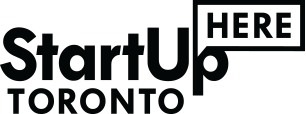
This article was generously sponsored by Startup Here Toronto.
Related Stories
https://www.liisbeth.com/2019/06/25/gaslighting-the-silent-killer-of-womens-startups/
https://www.liisbeth.com/2018/08/07/start-up-incubators-are-failing-women-entrepreneurs-so-lets-fix-it/





